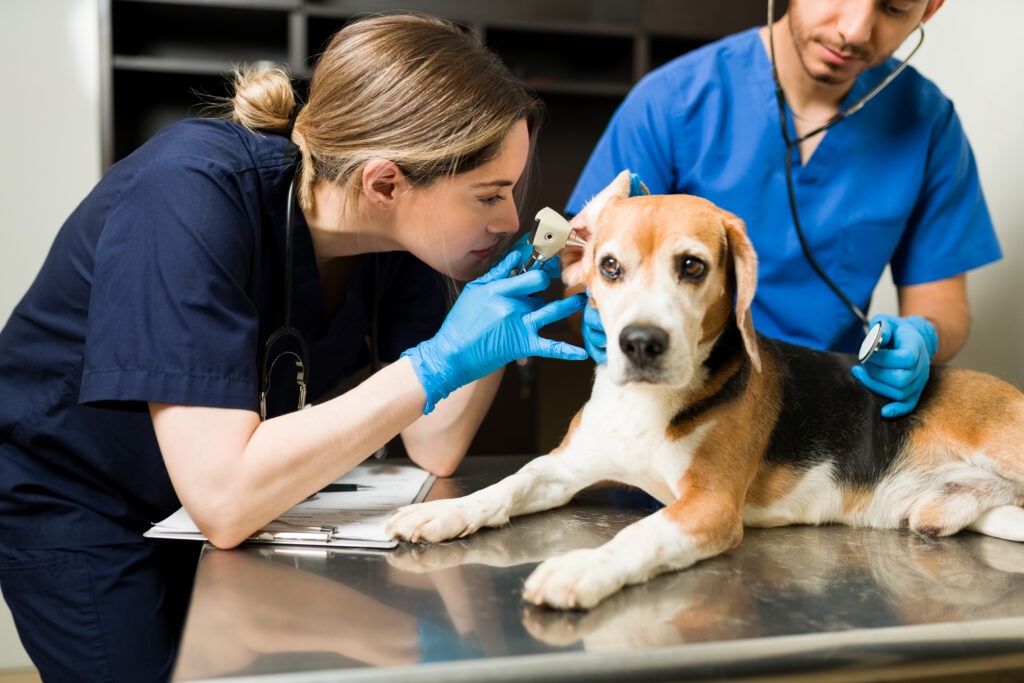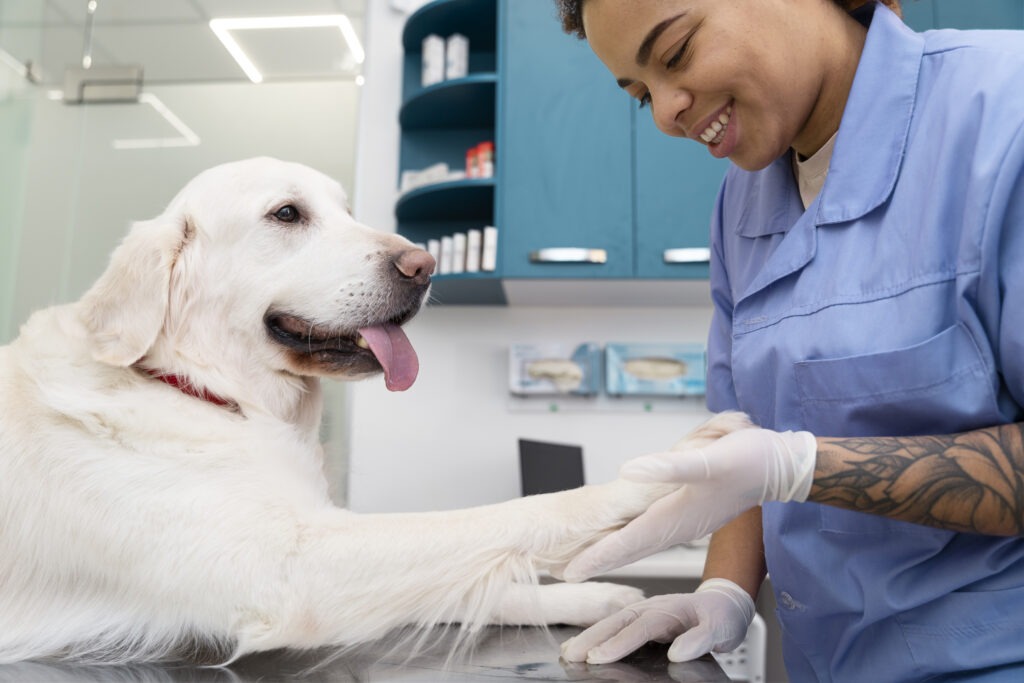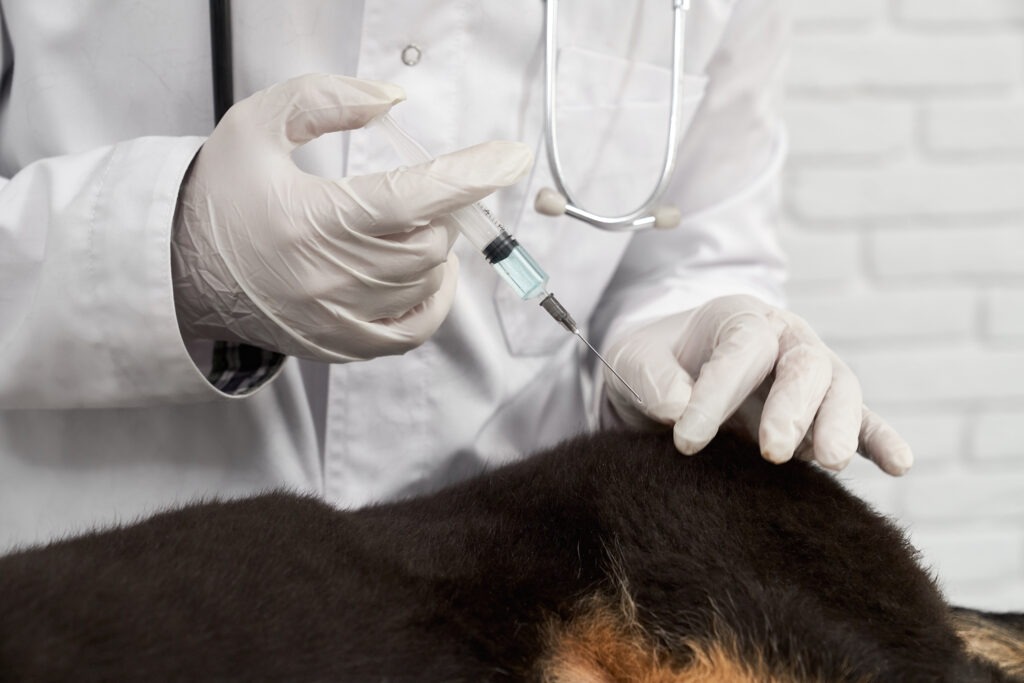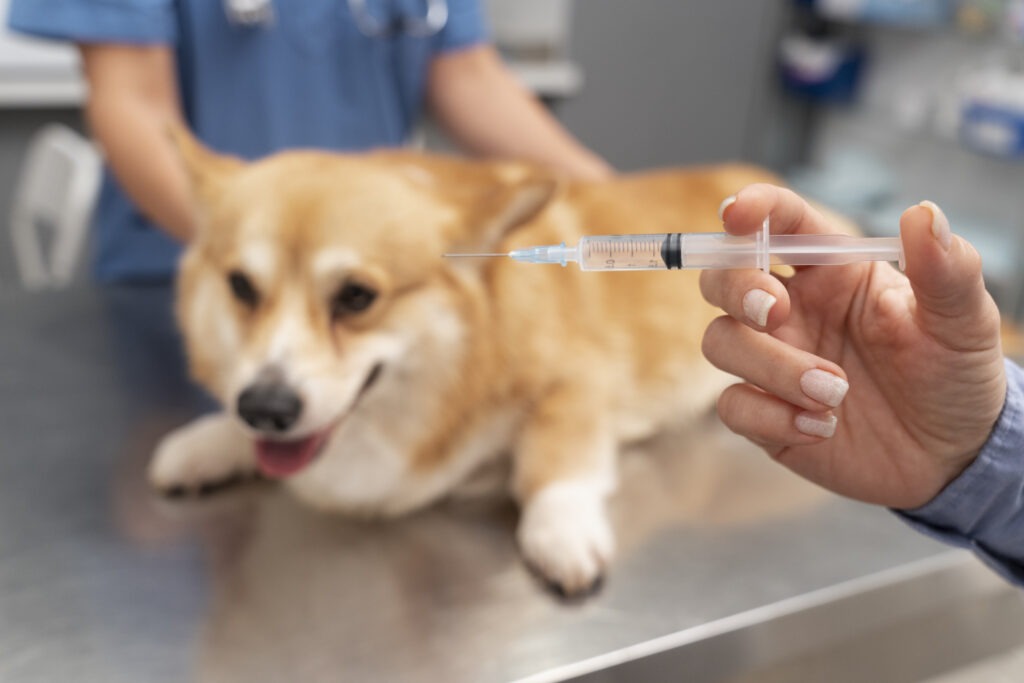As your cherished canine companion enters their golden years, you may find yourself re-evaluating their healthcare needs. Their once boundless energy may have been replaced by a more gentle, serene presence, and you’re dedicated to ensuring their comfort and happiness. A critical question for any loving pet owner is do senior dogs need vaccinations? and its close cousin, do older dogs need vaccinations? It’s a valid and important query. You may wonder if their immune system is still strong enough to handle vaccines, or if years of shots mean they’re protected for life. The truth is, the answer isn’t a simple yes or no, but rather a conversation about their specific health, lifestyle, and a modern approach to veterinary care.
In this article, we’ll dive deep into this topic, separating fact from fiction and giving you the insights you need to make the best possible decisions for your furry family member. We’ll explore the science of their aging immune system, the difference between essential and elective vaccines, and a modern approach to vaccination that is tailored to their specific needs. By the time you finish reading, you will have a clear understanding of why asking “Do older dogs need vaccinations?” is so critical, and you’ll be empowered to have a productive, informed discussion with your veterinarian.
Disclaimer: This article is for educational purposes only and does not replace professional veterinary advice. Vaccination decisions should always be made in consultation with a licensed veterinarian who knows your dog’s medical history.

Do Senior Dogs Need Vaccinations ?
To truly understand the answer to the question, “Do senior dogs need vaccinations?” you have to first understand what’s happening inside your older dog’s body. As dogs age, just like humans, their immune system undergoes a process called immunosenescence. In simple terms, the immune system becomes less efficient. It doesn’t respond as quickly or as robustly as it did in their youth. This means that even if your dog received a full set of vaccinations as a puppy and maintained their boosters for years, their protection might begin to wane.
Think of it like an aging army. The soldiers are still there, but they may be slower to react to an invasion. For diseases that are highly contagious and potentially fatal, this decline in immunity can leave your senior dog vulnerable. This is a key reason why the question, “Do senior dogs need vaccinations?” is more important now than ever. You might think, “My dog has had their shots for years, so surely they’re protected for life.” While some vaccines do offer very long-lasting protection, the reality is that the effectiveness can decline, especially as your dog’s health and vitality change. For this reason, a regular check-in with your vet is crucial to reassess their protection and decide, on a case-by-case basis, do older dogs need vaccinations?
Core vs. Non-Core: A Tailored Approach to Protection
The first step in answering “Do senior dogs need vaccinations?” is to distinguish between two categories of vaccines: “core” and “non-core.” The American Animal Hospital Association (AAHA) and other veterinary organizations have established these categories to help veterinarians and owners create a plan that provides the most protection with the least risk.
Core Vaccines: The Non-Negotiables
Regardless of their location or way of life, core vaccinations are thought to be necessary for all dogs. These protect against diseases that are highly contagious, have a high mortality rate, and are widespread. When you ask, “Do older dogs need vaccinations?” the answer for core vaccines is almost always a qualified “yes,” unless your vet determines there is a specific, overriding medical reason not to.
The core vaccines for dogs are:
- Rabies: This is a legally mandated vaccine in most places around the world. Humans can contract the deadly virus that causes rabies, which damages the central nervous system. The law requiring this vaccine is a public health measure, and it’s essential for your dog’s safety and the safety of your community. When considering the question, “Do senior dogs need vaccinations?” You most likely can’t avoid the rabies vaccination.
- Canine Distemper Virus (CDV): A serious and often fatal viral disease that attacks multiple body systems.
- Canine Parvovirus (CPV): A highly contagious virus that causes severe gastrointestinal distress and can be deadly, especially in dogs with compromised immune systems.
- Canine Adenovirus-2 (CAV-2): Protects against infectious hepatitis.
For these core vaccines, many vets now recommend a booster every three years, rather than annually, for most dogs. However, because of the decline of the immune system in older dogs, your vet may recommend a more frequent schedule. They are the best person to answer, “Do senior dogs need vaccinations?” in a way that respects your dog’s unique needs.

Non-Core Vaccines: The Lifestyle-Dependent Shots
The question, “Do older dogs need vaccinations?” becomes more complex when we consider non-core vaccines. These are recommended only for dogs with a lifestyle that puts them at higher risk of exposure. For a senior dog who spends most of their time at home and takes short, quiet walks in the neighborhood, their needs will be very different from a dog who regularly goes to the dog park, a boarding facility, or a groomer. This is where your honest assessment of your dog’s routine is vital.
Common non-core vaccines include:
- Bordetella (Kennel Cough): Recommended for dogs that are frequently around other dogs, such as at dog parks, daycare, or boarding kennels.
- Leptospirosis: A bacterial disease that can be contracted from contaminated water, soil, or urine from infected wildlife. If you live in a rural area, or your dog drinks from puddles or streams, this vaccine is a crucial part of their health plan.
- Canine Influenza: A relatively new vaccine that is important if your dog socializes with a large number of other dogs.
When you’re asking, “Do senior dogs need vaccinations?” it’s crucial to consider these non-core options. A dog that has a social and active lifestyle may still need these boosters annually, even in their old age. In contrast, a homebody might not. Your vet can help you weigh the risk of exposure against the benefit of the vaccine to decide which shots are truly necessary.
The Risks of Over-Vaccination: A Valid Concern
It’s completely normal to feel cautious about giving your senior dog more injections. Many owners are concerned about the potential for adverse reactions or the long-term effects of “over-vaccination.” This is a valid and important topic to discuss, and it’s a key part of the conversation about “Do senior dogs need vaccinations?”
While vaccines are incredibly safe, some dogs may experience mild side effects, such as lethargy, a low-grade fever, or a small, temporary lump at the injection site. These are usually short-lived and resolve on their own. In very rare cases, a more severe allergic reaction (anaphylaxis) can occur, which is why it’s always a good idea to monitor your dog for a few hours after a vaccination.
The bigger concern for many owners is the potential for long-term health issues associated with repeated vaccination. Some holistic and alternative health practitioners suggest that over-vaccination can lead to chronic diseases or immune-mediated disorders. While the scientific community continues to study this, the consensus among major veterinary associations is that the risks of contracting a preventable, often fatal, disease far outweigh the risks of a well-tailored vaccination protocol. This is why a balanced, individualized approach is so important.
The truth is that the question, “Do older dogs need vaccinations?” is not about avoiding them altogether but about giving the right ones at the right time. Your vet’s job is to protect your dog, and they will work with you to minimize risk while maximizing protection. This considerate and cooperative method lies at the core of contemporary veterinary medicine and represents the most responsible means to tackle the inquiry, “Do senior dogs need vaccinations?”
Major veterinary organizations agree that vaccines, when properly scheduled, are far safer than the diseases they prevent.
you may like – Senior Dog and Puppy Adjustment Journey: Best Training Tips & Bonding Tips
A Modern Solution: The Power of Titer Testing
For pet owners who are particularly concerned about over-vaccination but still want to ensure their dog is protected, there is an excellent modern alternative to blanket vaccination: titer testing. A titer test is a simple blood test that measures the level of antibodies your dog has against specific diseases, such as distemper and parvovirus.
Think of it this way: a vaccine is like an insurance policy you take out every few years. A titer test is like a check on that policy to see if you still have coverage. If the titer test shows a high level of protective antibodies, it means your dog is still well-protected, and a booster shot may not be necessary at that time.
So, when you find yourself asking, “Do senior dogs need vaccinations?” you can consider a titer test as a valuable tool. It can help you and your vet make a data-driven decision. Instead of just following a schedule, you are reacting to your dog’s actual level of protection. This can be especially useful for a senior dog, as it can help you avoid unnecessary boosters while ensuring they remain immune to core diseases. While titer tests can be more expensive than a vaccine, many owners find the peace of mind to be well worth the cost. It’s an empowering way to answer the question, “Do older dogs need vaccinations?” with precision and confidence.
Titer testing is not accepted as a replacement for legally required vaccines such as rabies and may not be suitable for every dog.

Beyond the Needle: A Holistic Approach to Senior Health
Vaccinations are an important part of senior dog care, but they are just one piece of a much larger puzzle. To truly answer the question, “Do senior dogs need vaccinations?” you must consider their overall health. An aging body can have many subtle changes that are easily missed. Regular, comprehensive veterinary check-ups are essential, and many vets recommend these visits twice a year for senior pets.
During these appointments, your veterinarian will conduct a comprehensive physical assessment, auscultate their heart and lungs, and evaluate their joints and mobility. They may also recommend a senior blood panel, which can detect early signs of kidney, liver, or thyroid disease. These check-ups are also the perfect time to discuss your dog’s vaccination needs, and to have a frank conversation about whether your older dog needs vaccinations.
In addition to medical care, a holistic approach to senior health includes:
- Nutrition: Switching to a senior-specific food can help manage weight, support joint health, and provide the right nutrients for an aging body.
- Exercise: Gentle, consistent exercise, such as short walks, helps maintain muscle mass, flexibility, and a healthy weight.
- Dental Care: Dental disease is incredibly common in older dogs and can lead to serious health issues. Regular dental check-ups and cleanings are non-negotiable.
- Mental Stimulation: Engaging their minds with puzzle toys or gentle training sessions can help keep their cognitive function sharp.
By focusing on all these aspects of their care, you are not only answering the question, “Do senior dogs need vaccinations?” but you are also building a comprehensive wellness plan that addresses all of their needs as they age.

The Final Word: The Conversation is Key
When you first started reading, you were probably wondering, “Do senior dogs need vaccinations?” and “Do older dogs need vaccinations?” The simple answer is yes, they absolutely can, and often do, need them. But the more complex and accurate answer is that the decision should never be a one-size-fits-all approach. It must be a personalized plan created in collaboration with your veterinarian.
Your vet is your partner in your dog’s health journey. They are a trained professional who can weigh the benefits of a vaccine against any potential risks, consider your dog’s lifestyle and medical history, and help you find the protocol that is best for your unique companion. By asking intelligent questions and being an active participant in the decision-making process, you are doing the most loving thing you can for your aging friend.
So, the next time you find yourself pondering, “Do senior dogs need vaccinations?” or “Do older dogs need vaccinations?”, don’t search online for a blanket answer. Instead, trust the bond you have with your dog and the expertise of your vet. Schedule an appointment, talk through your concerns, and together, create a plan that ensures their golden years are as healthy, happy, and safe as possible. After all, they deserve nothing less.
Frequently Asked Questions (FAQ)
At what age should you stop vaccinating your dog?
There is no specific age to stop vaccinating your dog. Most veterinarians agree that core vaccinations (like Rabies, Canine Distemper, and Parvovirus) are necessary throughout a dog’s life. However, for senior dogs, the frequency and type of vaccines may be adjusted based on their health, lifestyle, and the vet’s recommendation.Some owners opt for titer testing to measure a dog’s existing immunity before giving a booster.
Do older dogs need vaccines?
Yes, in most cases, older dogs do need vaccinations. As a dog’s immune system ages, its ability to fight off diseases can decline, making them more vulnerable. While the three-year vaccination schedule is common for adult dogs, your vet may recommend an updated plan for your senior dog to ensure they remain protected against serious diseases.
Will a vet operate on a 13-year-old dog?
A dog’s age alone is not a reason to avoid surgery. A good veterinarian will base their decision on a comprehensive health evaluation of the individual dog. They will perform pre-anesthetic blood work, and sometimes X-rays or other tests, to assess organ function and identify any underlying health issues. If the benefits of surgery (such as pain relief from dental disease or removal of a tumor) outweigh the risks, a vet will often proceed with the operation.
Does my 10-year-old dog need a distemper shot?
The distemper vaccine is considered a “core” vaccine and is recommended for all dogs, regardless of age, because the disease is highly contagious and often fatal. While many distemper vaccines provide immunity for three years, the decision of whether to give a booster to your 10-year-old dog should be made in consultation with your veterinarian, who can consider your dog’s specific health and vaccination history.
Is it worth vaccinating older dogs?
Yes, it is absolutely worth vaccinating older dogs. The risk of a senior dog contracting a preventable, and potentially deadly, disease like Rabies or Parvovirus is far greater than the minimal risks associated with a carefully considered vaccination. Vaccinations are a cornerstone of preventive care that can significantly improve your senior dog’s quality of life and longevity.
Does a 15-year-old dog need a rabies shot?
Yes. The rabies vaccine is legally required in most regions, and it is essential for protecting your dog from a fatal disease that can also be transmitted to humans. Even if your 15-year-old dog has been vaccinated their entire life, local laws and public health protocols mandate ongoing rabies vaccinations, often on a one- or three-year schedule.
